Blogs and Free Resources
Here at PESI, our mission is to provide professionals like you with FREE practical and valuable tools, strategies,
and resources to assist with the great work you do. Find expert tips, helpful worksheets, demonstration videos, CE, news,
and more here. Happy learning!

How to Develop a Safety Plan with Suicidal Clients
A Process of Inquiry That Promotes Empathic Connection
Effective suicide assessments are built on a foundation of empathic connection. When clients feel heard, understood, and respected, they’re likelier to let down their guard and explore sensitive topics.
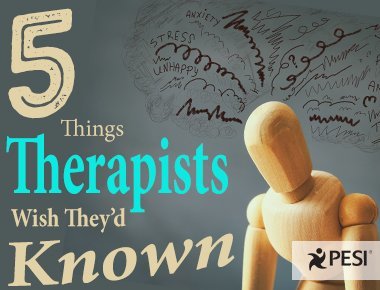
5 Things Seasoned Therapists Wish They'd Known
... And the One Question You Should Always Ask Your Clients...
We asked some seasoned therapists to pass on the lessons they wish someone had told them when they were first starting out, and here are the results!
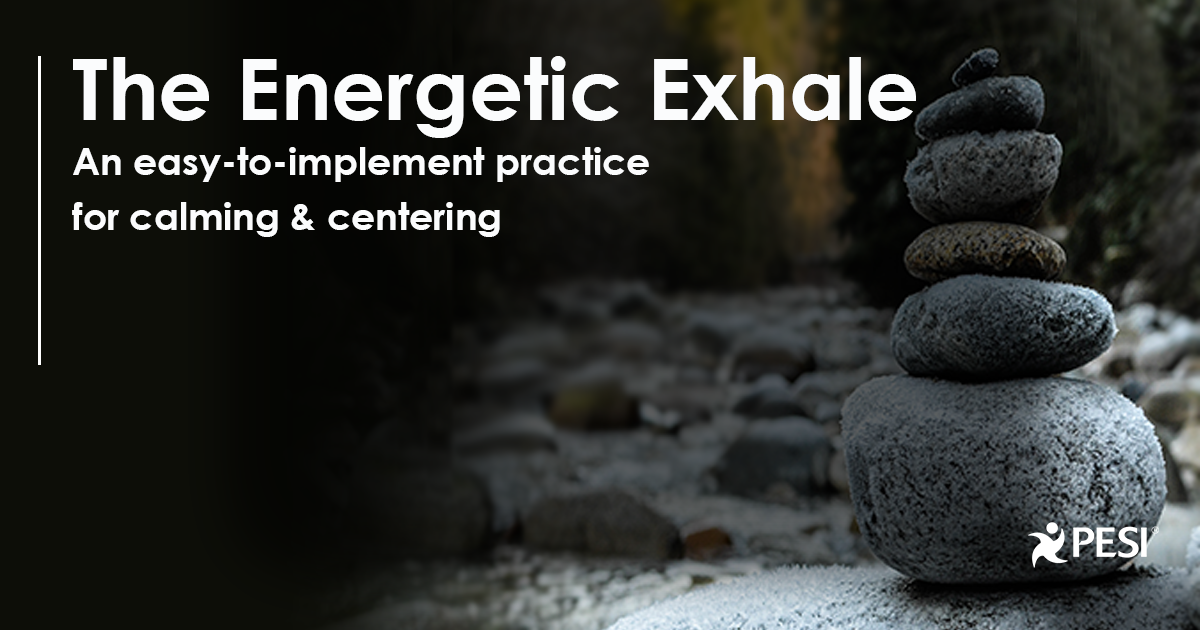
The Energetic Exhale
The incredibly simple and powerful mindfulness practice that only takes a second...
We all experience times of anxiety, stress, frustration, anger and impatience. But getting stuck in these states can take a tremendous toll on our bodies, impair our thinking, and make it difficult to speak or act effectively.That's why I teach my clients this powerfully effective mindfulness practice that can calm our nervous system in seconds...
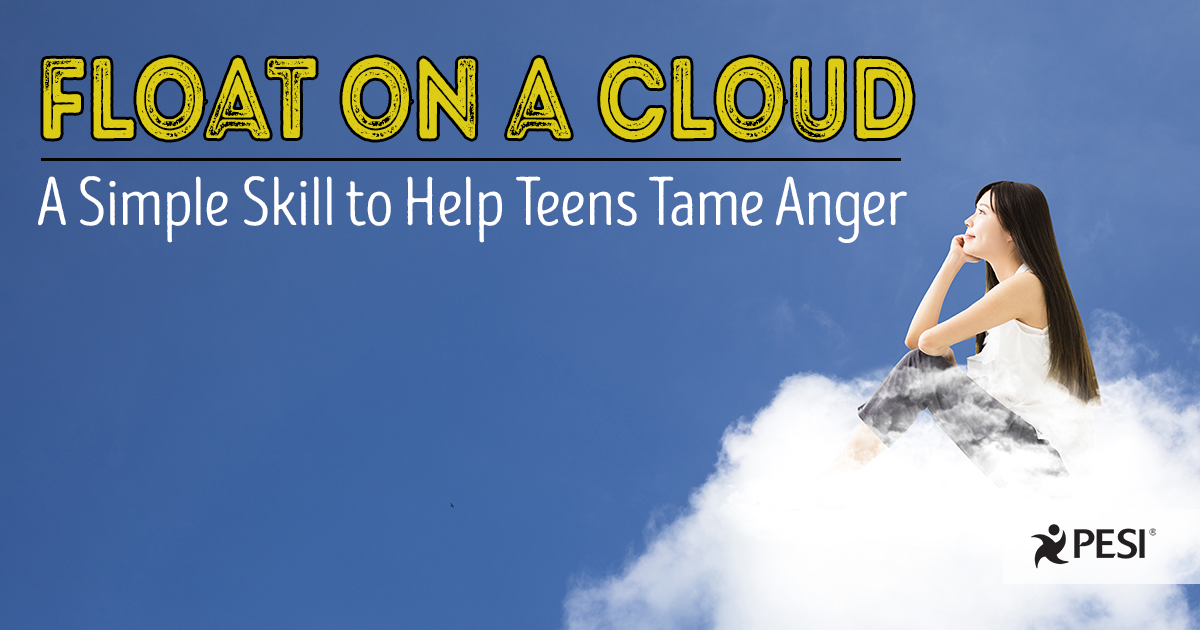
Letting Go of Anger
A simple skill to successfully manage teen anger
Float on a Cloud is a popular and highly effective tool to manage not only a teen's anger, but also those underlying, super-strong feelings felt immediately before anger such as: frustration, fear, hurt, failure, humiliation, shame, sadness, rejection, distrust, jealousy, inadequacy, and insecurity. Just follow these 4 simple steps...
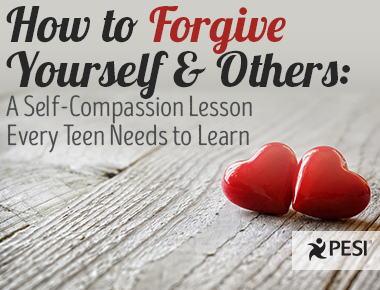
How to Forgive Yourself and Others
A Self- Compassion Lesson Every Teen Needs to Learn
Self-compassion and mindfulness skills can be adapted to almost any challenging situation teens face. The card deck I created provides over fifty conversation starters and exercises you can use with teens to help build mindful awareness, compassion, empathy, and kindness. Try this easy-to-implement exercise on forgiveness.
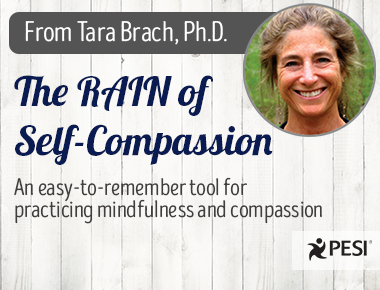
The RAIN of Self-Compassion
In order to unfold, self-compassion depends on honest, direct contact with our own vulnerability. This compassion fully blossoms when we actively offer care to ourselves. Yet when we’ve gotten stuck in the trance of unworthiness, it often feels impossible to arouse self-compassion. To help people address feelings of insecurity and unworthiness, I like to share a meditation I call the RAIN of Self-Compassion. This easy-to-remember tool for practicing mindfulness and compassion uses four simple steps…
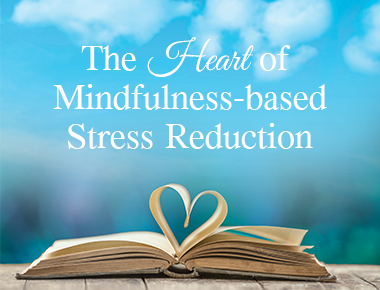
S.T.O.P.: An MBSR Practice for Developing Awareness
One of the things we practice in MBSR is becoming aware of the triggers of dissatisfaction and suffering. A wonderful way to maintain a greater sense of well-being is the ability to notice when things get a little off kilter and we start to experience unhappiness. It is in this moment that we can use the method of S.T.O.P. to allow ourselves to listen with open hearts and minds and commit to being freer and happier.

There's No Such Thing as You Made Your Bed Now Lie in It...
For many people who were raised in abusive, neglectful, or dysfunctional families, “you made your bed now lie in it” is a common life philosophy taught and promoted throughout childhood. But the truth is, the personal, academic, and professional decisions that met your needs 5, 10, or 20 years ago may be completely irrelevant to your life today.
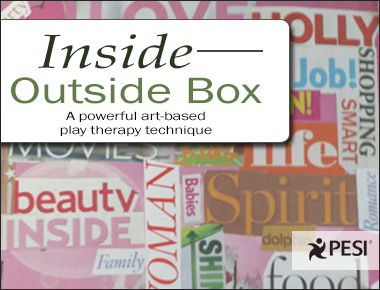
Inside/Outside Box
A powerful art-based play therapy technique
The Inside/Outside Box is a wonderful tool that elicits powerful emotions and helps tweens and teens begin to see their whole self, creating a launching pad for blossoming self-esteem and self-worth.
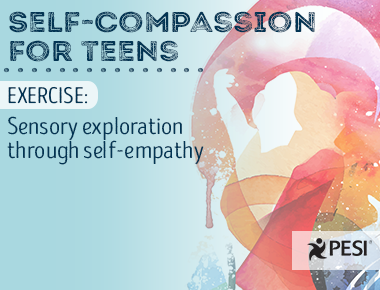
Self-Compassion for Teens
A sensory activity worksheet
Self-compassion for teens reduces suffering and stress through mindful awareness, self-kindness, interconnectedness, as well as the willingness to take action to relieve suffering.



